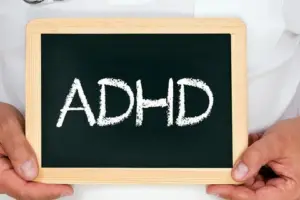Attention Deficit Hyperactivity Disorder (ADHD) is a neurodevelopmental disorder characterized by difficulty in sustaining attention, hyperactivity, and impulsivity. While it’s often diagnosed in childhood, many individuals may go undiagnosed until adulthood. Understanding the symptoms of ADHD can be the first step toward seeking proper diagnosis and treatment. This article will provide an ADHD symptoms checklist to help you identify potential signs of ADHD in yourself or someone you know.
Understanding ADHD Symptoms
ADHD symptoms manifest in various ways and can significantly impact daily functioning across different areas of life, including work, school, and relationships. It’s essential to recognize that ADHD symptoms can vary widely from person to person, and not everyone will exhibit the same set of symptoms. However, there are common patterns and behaviors associated with the disorder.
ADHD Symptoms Checklist
Below is a checklist of common ADHD symptoms categorized into three main domains: inattention, hyperactivity, and impulsivity. Consider whether you or someone you know experiences these symptoms frequently and to a degree that interferes with daily life.
Inattention Symptoms:
- Difficulty Concentrating: Do you often find it challenging to focus on tasks or activities that require sustained attention, such as reading a book or listening to a lecture?
- Easily Distracted: Are you easily distracted by external stimuli or unrelated thoughts, making it challenging to stay on track?
- Forgetfulness: Do you frequently forget essential appointments, deadlines, or obligations, even when you try to remember?
- Disorganization: Are you often disorganized, with cluttered workspaces, misplaced items, and difficulty prioritizing tasks?
- Difficulty Following Instructions: Do you need help following instructions or completing tasks, especially requiring multiple steps?
Hyperactivity Symptoms:
- Restlessness: Do you often feel restless or unable to sit still, especially when you are expected to remain seated?
- Excessive Talking: Do you frequently interrupt others or engage in excessive talking, even in inappropriate situations?
- Fidgeting: Do you constantly move or tap your hands or feet, even when it’s not socially acceptable?
- Impulsivity: Do you have difficulty waiting your turn or exercising patience, often acting on impulse without considering the consequences?
- Difficulty Relaxing: Do you need to feel the need to be constantly active to relax or engage in leisure activities?
Impulsivity Symptoms:
- Risk-Taking Behavior: Do you engage in risky or impulsive behaviors, such as reckless driving, substance abuse, or excessive spending?
- Difficulty Delaying Gratification: Do you struggle to delay gratification or resist immediate impulses, even when it may lead to adverse outcomes?
- Blurting Out: Do you frequently blurt out answers or thoughts before fully processing them, leading to social awkwardness or misunderstandings?
- Interrupting Others: Do you habitually interrupt others during conversations or activities without pausing appropriately?
- Poor Time Management: Do you often underestimate the time required to complete tasks or procrastinate until the last minute, leading to missed deadlines or rushed work?
Seeking Professional Help
Identify several of the abovementioned symptoms and how they significantly interfere with your daily functioning. It may be beneficial to seek professional evaluation from a qualified healthcare provider. A comprehensive assessment, including a thorough medical history, behavioral observations, and standardized assessments, can help determine whether ADHD or another underlying condition is present.
Treatment Options
While there is no cure for ADHD, various treatment options can help manage symptoms and improve overall functioning. These may include:
- Medication: Stimulant medications such as methylphenidate and amphetamine are commonly prescribed to help increase attention and reduce hyperactivity and impulsivity.
- Therapy: Behavioral therapy, cognitive-behavioral therapy (CBT), and psychoeducation can help individuals develop coping strategies, improve organizational skills, and address any associated emotional or psychological issues.
- Lifestyle Changes: Healthy lifestyle habits such as regular exercise, adequate sleep, and a balanced diet can help alleviate ADHD symptoms and improve overall well-being.
Conclusion
Recognizing the symptoms of ADHD is the first step toward seeking proper diagnosis and treatment. While the symptoms listed in this checklist can provide guidance, consulting with a healthcare professional for a comprehensive evaluation is essential. With the proper support and interventions, individuals with ADHD can learn to manage their symptoms effectively and lead fulfilling lives.
